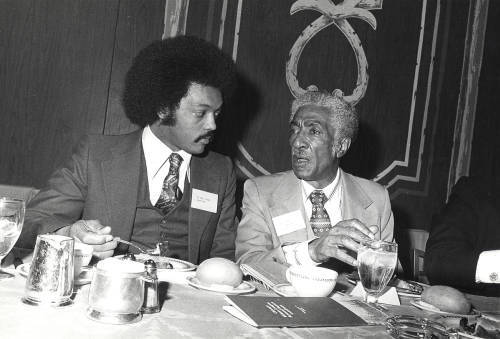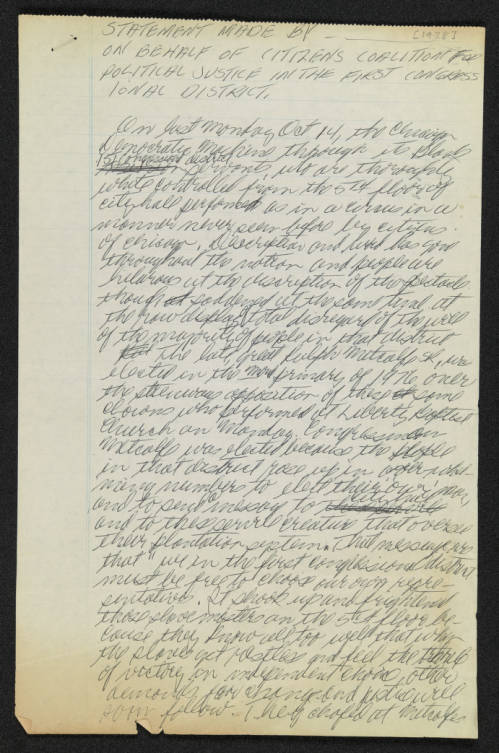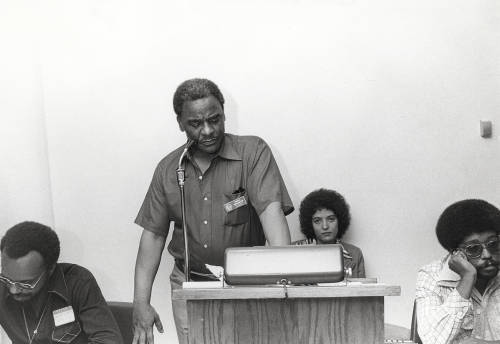Chicago Mayor Washington: Political Career and Election
It was while working with his father that Washington made the acquaintance of Ralph Metcalfe, who had previously been an Olympic sprinter and was then an alderman involved with Chicago’s Democratic party. In 1954, only a few years after Washington began working with his father, Roy Washington passed away. Metcalfe requested that the younger Washington take over his father’s position as precinct captain. For the next 10 years, Washington worked in the Third Ward, supporting Democratic candidates. During this time, he also worked with the Illinois Industrial Commission.
From there, Washington's career continued onward and upward. In 1965, he became a state representative for the Third Ward and then a state senator in 1977. Then, from 1981 to 1983, he served in the U.S. Congress. During these years, he proved himself to be an innovative figure. He broke from the tradition of Chicago’s political machine by gravitating towards civil rights issues. Among the causes he supported were the Illinois Legislative Black Caucus, the Equal Rights Amendment, and the Fair Employment Practices Act.
Washington’s first run for mayor took place in 1977, following the death of the previous mayor, Richard J. Daley. At this time, he did not garner the support he needed, even from Black voters; his run ended in the primaries, with him receiving only 11% of the votes. After this loss, while serving in Congress, multiple political groups from Chicago began encouraging Washington to run for mayor again, in what would be the 1983 election; he would notably be running against the incumbent, Jane Byrne (Chicago’s first female mayor), and Richard M. Daley (Richard J. Daley’s son) in the Democratic primary election. Washington agreed to try once again, on the condition that voter registration drives take place first. Despite his previous loss, Washington had seen the type of support that Metcalfe had received as a representative for Chicago’s Black communities, and he had faith in their voting power.
The registration drives had astounding results—after they took place, over 100,000 new Black voters were registered. The support of these voters led Washington to win the Democratic primary with 36% of the votes and then the general election (against Republican Bernard Epton) with approximately 51% of the votes. In their book Harold Washington and the Neighborhoods: Progressive City Government in Chicago 1983–1987, Pierre Clavel and Wim Wiewel note that, “Washington started his mayoralty on the strength of a black mass movement, with critical support from white independents and from Hispanics;” that being said, he still “faced . . . very strong opposition” [1]. Although Washington had won the mayoral race, the reality was that his work had only just started.
[1] Pierre Clavel and Wim Wiewel, eds., Harold Washington and the Neighborhoods: Progressive City Government in Chicago 1983–1987 (New Brunswick, N.J.: Rutgers University Press, 1991), 28.



